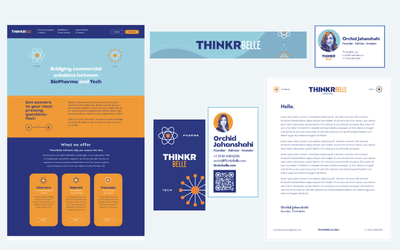How does Google rank you, anyway?
You don’t need a marketing diploma to know that where you rank in Google’s (or Bing’s) search results matters. In fact, over 50% of people click on the first listing Google serves them, according to these 2018 stats from Smart Insights. This varies by industry and how many words someone uses to find what they’re looking for.
If you want to get the coveted top spot, you need to do some work to reach—and stay—in that first Google search position. This article will help you understand how Google ranks sites and how you can improve your position.
Understanding Google’s algorithm
No doubt you’ve heard the word “algorithm” in reference to your web presence. And you may have some sense of what it does. But, really, what is an algorithm? Simply put, a search algorithm is a set of factors (more than 200 of them, in Google’s case!) designed to establish two things: authority and relevancy of your website. Though human-made, the algorithm is computer-run, and it is also constantly changing in an effort to improve results. We should also tell you that Google’s exact algorithm is a closely-guarded secret; akin only to KFC’s chicken recipe (which, btw, may have been accidentally revealed last year).
The reason Google’s algorithm (and that of other search engines) is so often talked about is that it determines how you rank in search results. The algorithm decides who is listed first—you or one of your competitors. And as Neil Patel points out, “Given that Google handles over 2 trillion searches per year (that’s about 40,000 every second), even the smallest changes to their algorithm can have a massive impact on any given site.”
How can I make my website rank better?
Entire careers are built on this question. Even though we don’t know the recipe for their secret sauce, we do know the key ingredients. While no one knows Google’s exact algorithm, we have a good sense of how to get a site ranking better. We’ve had several clients come to us who were concerned about their poor ranking. Fixing this problem isn’t rocket science, you just need to roll up your sleeves and give it at least a few months to take effect. Here’s how we’ve turned around poor rankings for our clients:
1. Evaluate your website
Before you can improve your site, you’ll need to know exactly what you’re dealing with. Be sure to document this baseline so you have a comparative later. Bearing in mind that whatever the algorithm, Google is searching for sites with authority and relevancy, take the time for a comprehensive review. This article can help you assess your website’s performance and correct weaknesses.
2. Is your content comprehensive?
For some time, in an effort to beat the algorithm, people infused their content with specific keywords that were alleged to drive traffic. Over time, though, this resulted in the web being over-run with poorly written, difficult-to-understand or off-topic articles. It became clear that what reads well for computers doesn’t necessarily work for human users.
More recently, Google tweaked their algorithm to measure content more qualitatively. Using keywords in your website copy is still very important but first and foremost, your site needs to work for your customers and buyers. So think about the keywords your audience uses to find you, and ensure they are included in the headlines of your website.
But it doesn’t end there. It’s also widely known that Google favours websites that are regularly updated with good quality content. For this exact reason, we produce blog posts for 100% of our clients. Generally speaking, we aim to publish a monthly post, which even the smallest of companies can pull off. Not only does the blog tell Google you are a subject matter expert, it’s also instills a greater sense of credibility to buyers visiting your website. Plus, it gives you something to talk about on social media. Win-win-win!
3. Check your metadata
This one’s a bit counter-intuitive. Metadata doesn’t directly improve your rankings anymore (it used to). What it does do is help others, both robot and human, find and navigate your site. And the resulting traffic (ie. people visiting your site) contributes to your ranking. So it’s a round-about thing.
What you should do is check your the page title and description you have for each page, all image descriptions for visually-impaired site visitors and robots, and the content structure to make sure you’re in tip-top shape for your visitors. To check your website’s page titles and page descriptions (or lack thereof) simply enter your URL.

Here is an example of a good listing:

4. Increase the number of sites linking to your website
Inbound links—especially from reputable websites—tell Google that you are an authority on that subject matter. The more “referral” links from reputable sources on that topic, the better you’ll rank for that very subject when people search for it. Another thing that can improve your ranking is to get highly regarded websites to link to your site. The higher their domain authority, the better the juju they’ll give you. You can find out a website’s domain authority using Moz’s awesome free tool. (See what we did there? We just gave Moz a little juju by linking to them—not that they needed any more.) Just beware that savvy websites use something called a “no follow” link, which gives you zero juju. If you suspect they are sufficiently advanced, ask that they give you a “do follow” link. There’s no harm in asking, right?
Unfortunately, even being the best in your category isn’t going to attract these sweet inbound links. Just like in the real world, you’re going to need to do a bit of networking and sales. Note that the emphasis is on quality, so skip the link farms and look into outreach, targeted PR and offering to pen guest posts for industry blogs (perhaps for an industry association or digital publication).
5. Take a look “under the hood” of your website
Though this is probably the least sexy task of the bunch, it’s crucial that your site is technically up-to-snuff. Do your pages load quickly? Are you optimized for mobile browsing? Is your site up-to-date with the latest Google guidelines so it can be crawled and properly indexed? Search engines like Google want to give searchers a great experience. If your site doesn’t deliver because it is frustratingly slow, or isn’t optimized for mobile, they won’t send traffic your way for long.
Now that you have an overview of what it takes to woo the algorithm, dig a bit deeper starting with our blog 5 ingredients for ranking first on Google. And if all this seems a bit overwhelming, we can help you. Improving your website’s ranking is definitely do-able—it just takes some strategic TLC.



